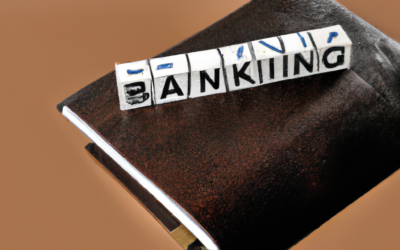Binance US drops FDIC insurance amid regulatory pressure
What is FDIC insurance?
FDIC stands for Federal Deposit Insurance Corporation, and it is an independent agency of the United States government that provides deposit insurance to depositors in US banks. The purpose of FDIC insurance is to protect depositors in case a bank fails or becomes insolvent. If a bank is insured by the FDIC, each depositor is covered up to $250,000 for their total deposits in that bank.
Why did Binance US drop FDIC insurance?
Binance US, a cryptocurrency exchange operating in the United States, has decided to abandon FDIC insurance coverage. This move comes amid increasing regulatory scrutiny and concerns over the legality of certain cryptocurrency activities.
Binance US made the decision to drop FDIC insurance to align itself with the fast-growing cryptocurrency industry, which operates differently from traditional banking. The company believes that by eliminating FDIC insurance, it can provide more freedom and flexibility to its users.
Regulatory pressure on Binance US
Binance US has been facing heightened regulatory scrutiny in recent months. Regulators have expressed concerns over the lack of transparency and regulatory oversight in the cryptocurrency industry. Lawmakers and regulators have pushed for more regulations to protect investors and ensure the stability of the financial system.
By dropping FDIC insurance, Binance US is taking a stance against traditional banking regulations and asserting its independence as a cryptocurrency exchange. However, this move could also raise further concerns among regulators who are already skeptical of the industry.
The implications of dropping FDIC insurance
The decision to abandon FDIC insurance has both pros and cons for Binance US and its users. On one hand, it allows the cryptocurrency exchange to operate without the restrictions and regulatory requirements imposed on traditional banks. Binance US can potentially offer more innovative services and products to its users, while also enjoying greater privacy and autonomy.
On the other hand, the absence of FDIC insurance means that Binance US users’ deposits are not protected against bank failures, fraud, or theft. If the exchange were to experience financial difficulties or security breaches, depositors could potentially suffer significant losses.
Frequently asked questions
1. What does it mean for Binance US to drop FDIC insurance?
By dropping FDIC insurance, Binance US is no longer providing deposit insurance to its users. This means that if the exchange were to face financial difficulties or security breaches, users’ deposits would not be protected.
2. Why did Binance US make this decision?
Binance US made the decision to drop FDIC insurance to align itself with the cryptocurrency industry, which operates differently from traditional banking. The company believes that eliminating FDIC insurance provides more freedom and flexibility to its users.
3. How does this decision affect Binance US users?
The absence of FDIC insurance means that Binance US users are taking on higher risks when depositing their funds on the exchange. If the exchange were to fail or experience security breaches, users could potentially lose their deposits.
4. What are the regulatory implications of dropping FDIC insurance?
Dropping FDIC insurance could raise further concerns among regulators who are already skeptical of the cryptocurrency industry. Regulators are pushing for more regulations to protect investors and ensure the stability of the financial system.
5. Are there any alternative protections for Binance US users?
While Binance US no longer provides FDIC insurance, users can take measures to enhance the security of their funds. This includes using strong passwords, enabling two-factor authentication, and storing their cryptocurrencies in secure wallets.
In conclusion, Binance US has decided to abandon FDIC insurance coverage amid regulatory pressure and in an effort to align itself with the evolving nature of the cryptocurrency industry. While this move offers more freedom and flexibility for the exchange and its users, it also comes with increased risks. Users should be aware of the implications and take necessary precautions to protect their funds.





